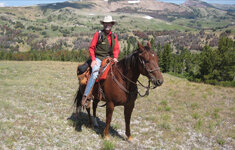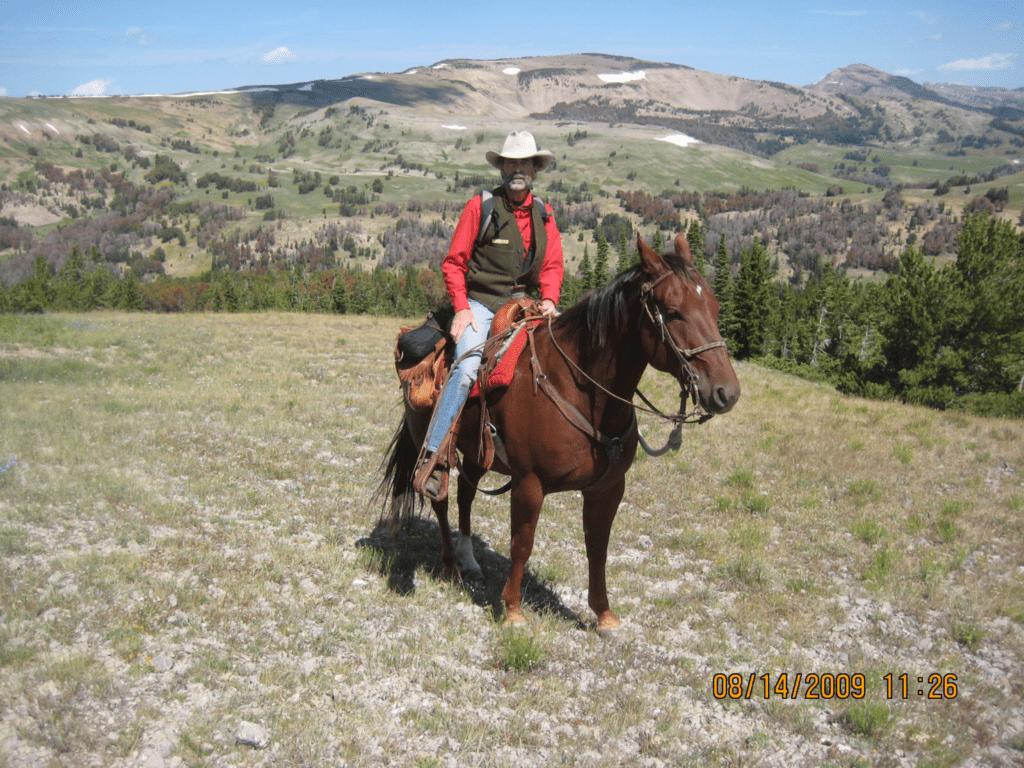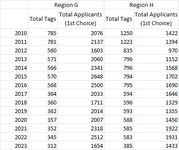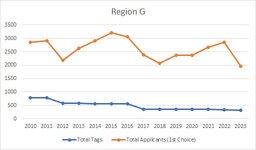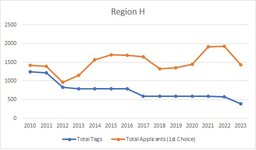I have grown up and currently live in the heart of the Salt River Range. I have had many conversations with Gary over the years and am grateful for the work that he has done for nearly four decades. I think that Gary, the Wyoming Game and Fish Department, and commission have incredibly difficult task of not only managing wildlife from a biological standpoint, but also to appease the Wyoming public as well. This was stated multiple times in the podcast. I can't imagine how frustrating it would be to ride the line of known science, yet trying to satisfy sportsman that only see the landscape through an anecdotal lens clouded by emotion and many false pretenses based on tradition. As Gary mentioned, one way that the G&F tries to quantify this is through the hunter harvest and satisfaction surveys. I agree with the department that this is one way to quantify public opinion. However, basing management decisions on the current way of taking these surveys has a potential to give a false pretense due to the fact that the surveys AREN'T mandatory. There has been a great push locally and state wide from sportsman to make harvest surveys mandatory. Yet, there has been significant resistance from the G&F to implement this. I still have not been given a sufficient answer as to why. I would be curious to know if anyone has more information as to why harvest surveys aren't mandatory in Wyoming.
It was also questioned in the podcast about the reasoning for again cutting non-resident tags. Thank you Robby for pushing this question. Although it wasn't stated directly, it seemed clear to me that this was based more on a social construct than biological. My purpose with saying this isn't to start the debate. I just hope that Wyoming residents (myself included) realize the slippery slope that we are starting to go down. Factors affecting the viability of the Wyoming range mule deer herd are complex. Perseverating on non residents and other hunters, isn't the answer in my opinion. I am seeing a huge movement of residents wanting to limit everyone else (including residents) because there are "too many hunters on the landscape". This way of thinking ONLY encourages self centeredness, a mentality of entitlement, and a notion of over crowdedness which isn't always the case.. It also creates unnecessary conflict when we should be targeting things that we know make a difference to the survivability and longevity of mule deer in general (ie. habitat, migration corridors, winter, summer range, etc.). Change is coming. I just hope people realize what they are asking for and the ramifications of what they are risking.
